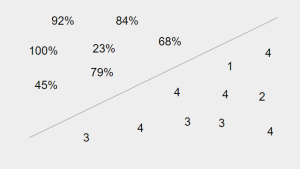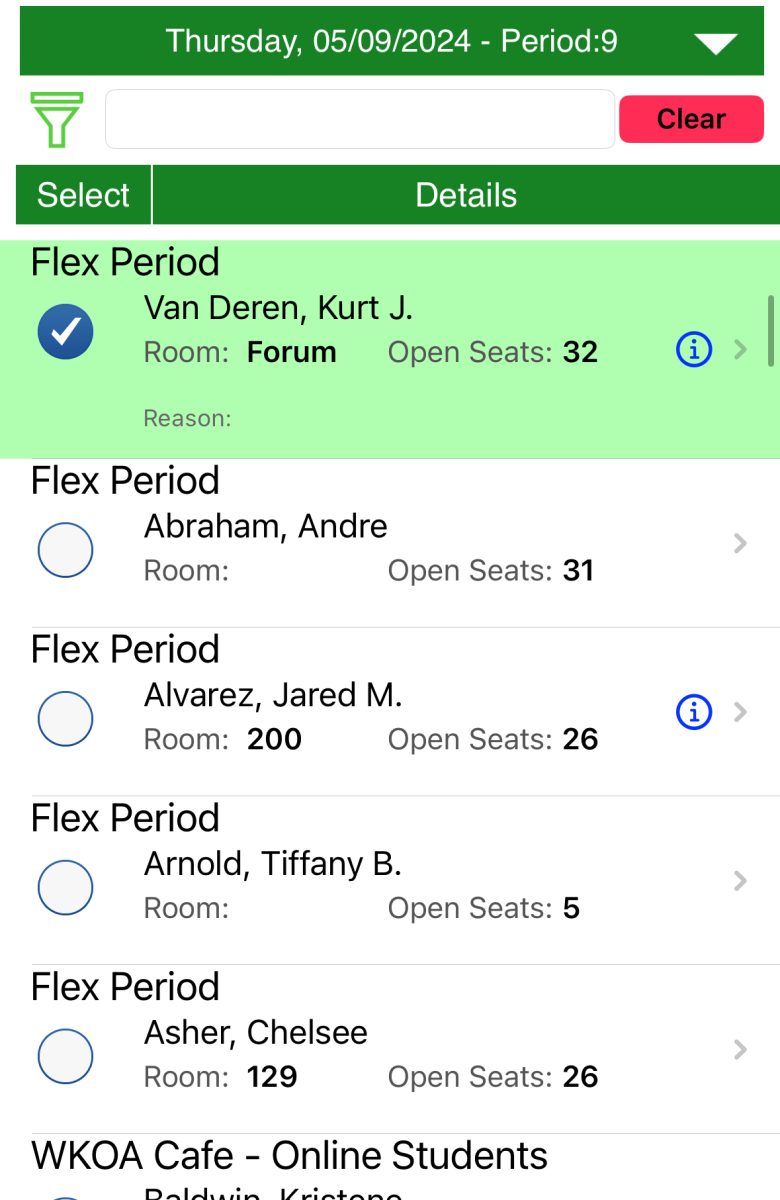A recent question surfaced in Mr. Fitzgerald’s AP English Language and Composition class. Junior Ellis Underhill wondered how the new eight-class schedule would affect her GPA.
Typically, GPAs are sums of all course grades throughout high school divided by the total number of credits needed. With more classes, graduation requirements have evolved extensively for the classes of 2025-2027. A minimum of 27 credits is the relevant threshold for freshmen through juniors at Wilsonville High School in order to earn a diploma. Therefore, students are expected to take more classes and excel to average a higher GPA compared to current seniors and graduate students.
There are many various opinions on the idea of blocked school days. From one perspective, one may see the benefits, such as the opportunity to experience a range of study fields throughout high school.
Sophomore Marlee Metzler attests to this side of the argument, saying, “I like having an A/B schedule because you get to have a day off in between classes, which is nice for my harder classes.” But is this time off beneficial for learning, or has it hindered memorization and performance on exams?
Research points out that grade/test correlations are not directly connected to class schedules and have barely wavered regardless of block or traditional school days. If anything, it’s understood that many students actually improved their grades with a block schedule.
The other side of this topic overviews the alternative opinion to applying A/B schedules throughout the school year. While certain students are able to manage alternate schedules, others fall behind and slip academically due to inconsistent instruction and class time.
Metzler describes another outlook by articulating, “Sometimes it’s harder to remember what we learned, but I always make it work.” Loss of continuity has resulted in greater amounts of absences and an overarching opinion that curriculum moves too quickly.
Wilsonville junior, Ellis Underhill, supports this claim saying, “The time when block schedules are harder is when I have a more difficult class like math only twice a week.”
In a typical school season, there are 36 weeks. In traditional secondary schools, the schedule includes 6-8 daily courses, which ranges from 40-55 minute periods.
Block schedules allow for 4-5 classes a day since they can take up to 95 mins. Depending on the week, students sometimes only go to a class for a total of 3 learning hours, (twice a week).
Some people fear that AP test scores may decrease because retained information could be considerably less due to A/B block days and more pressure on squeezing content into a shorter amount of teaching time.
Mix in monthly early release days, and it seems that there’s limited classroom time. On top of this, students are graded for life/FLEX class, which adds to the accumulative GPA.
This matters because GPAs represent students on their transcripts. For most colleges and universities, a minimum of a 2.0 GPA, (C average), is required for admission.
GPAs indicate a student’s academic average which highlights their strengths and weaknesses in various areas. Even AP grades don’t positively impact grades the same as most students expect.
Yes, there is more bandwidth in students’ schedules for extra classes such as stacking higher-level courses, and block schedules have been beneficial for teachers who spend class periods prepping and grading since they’re longer chunks of time. An endless list of pros and cons circulate how students think about block schedules.
Still, the new schedule has been implemented at Wilsonville High School, and although student concerns are often voiced, there are many ways to still excel with A/B schedules. Using FLEX class to advantage and communicating well with teachers are easy ways to stay ahead with 8 classes and maintain a decent GPA.








